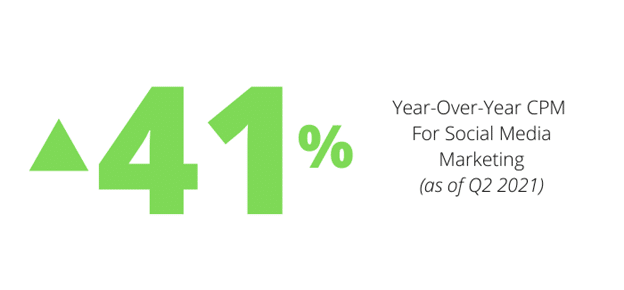Social media marketing has rewarded brands for years. At a certain point, the equation seemed as simple as picking the established social media platform that makes the most sense for your brand and spending the appropriate amount of money to see positive results.
The number of social media users isn’t decreasing drastically, but experts are beginning to believe that the payoff for marketers isn’t worth it. The cost per thousand impressions on social platforms has gone up over the years. Social media marketing had previously been accepted as the future, but are we in a new era?

In 2003, the Net Promoter Score was created to measure how likely a customer is to recommend a brand. Recently, social media campaigns are scoring low in the equation. Similarly, there has been a decline in organic reach of Facebook marketing from 16% in 2012 to 6% in 2022.
Why might the effectiveness be wearing thin? There are several possible reasons, with each being of particular interest to promotional products pros looking to gain ground in their clients’ marketing expenditures.
Fatigue And Polarization
Over time, social media has become a primary source for news, and even users who go elsewhere for their news are being exposed to headlines, and more specifically, opinions about the world events. While that might not be enough to lure people away from social media, it is leaving a bad taste in their mouths. More and more people would admit to associating social media with an “addiction.” While that may be good for social media platforms, it’s not ideal for those using it to market their brands.
“The pandemic has mentally exhausted many people, forcing them to look for non-digital outlets,” says data-based marketing expert Ruben Ugarte, who has appeared on NBC, CNBC, FOX, and CNN and is the author of Data Mirage: Why Companies Fail to Actually Use Their Data.
Privacy
For years, social media platforms (as well as search engines) took for granted that they could track their users’ data and sell it to third party advertisers. This, the logic went, was simply part of the deal. Social media marketing still operates this way in some sense, but new privacy laws have been introduced over time that have stifled the effectiveness of this strategy. Likewise, companies such as Google have moved away from collecting data “cookies” to track user preferences.
Simply put, there is a stigma on the practice of tracking users’ data.
“The writing is on the wall for the targeted advertising industry, as privacy advocates’ concerns are finally being heard and acted upon through a mix of regulation and the industry’s own nascent efforts,” says Tammy Parker, principal analyst at GlobalData.
What Can Fill That Void?
Ugarte preaches the value of email as a marketing tool, but according to him, referrals are no less effective forms of marketing than they were before the dawn of social media.
“Referrals have always been effective, and that hasn’t changed,” says Ugarte. “Social media is meant to make referrals easier, but the medium is running into difficulties.”

The direct or even passive customer referral is of course an elusive goal for most brands. It is the type of marketing that is wholly out of the brand’s control. “We still highly trust when a friend recommends a brand or product, which isn’t changing soon” Ugarte says. But, while customers may not consciously think this way, most value the integrity of their recommendations and don’t want to oversaturate the products they are endorsing to others.
This is where promotional products make some headway. A few years ago it might have been feared that physical marketing tools could become increasingly outdated compared to social media marketing, but it seems that line of thinking itself is becoming antiquated.
Promotional products often provide practical purpose to customers. “I believe companies and industries can do well when they deliver value to the customer, regardless of whether the value is tangible,” Ugarte says.
Keeping a promotional product in one’s home or taking it out into the world is its own passive endorsement of that brand. It’s a positive association, which right now, can’t be said for much of social media marketing.


